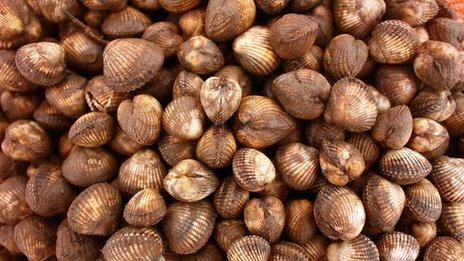Cockle 'transplant' could let Solway beds reopen
- Published
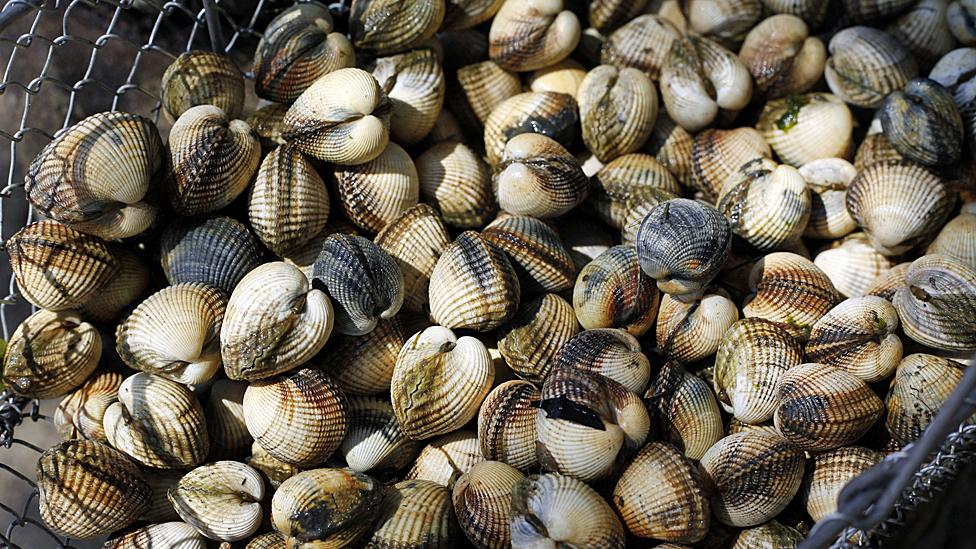
The study will see cockles moved from a donor to a host bed
A cockle "transplant" could allow beds on the Solway Firth which were closed about a decade ago to reopen.
Commercial harvesting was stopped as numbers dwindled along the coast of Dumfries and Galloway.
The University of Glasgow has now secured funding to develop a trial to repopulate beds in the area.
Senior lecturer Dr Steven Gillespie said it could prove "very significant" in terms of economic development and ecological restoration in the area.
Cockles have been commercially gathered in the area periodically since the late 1980s.
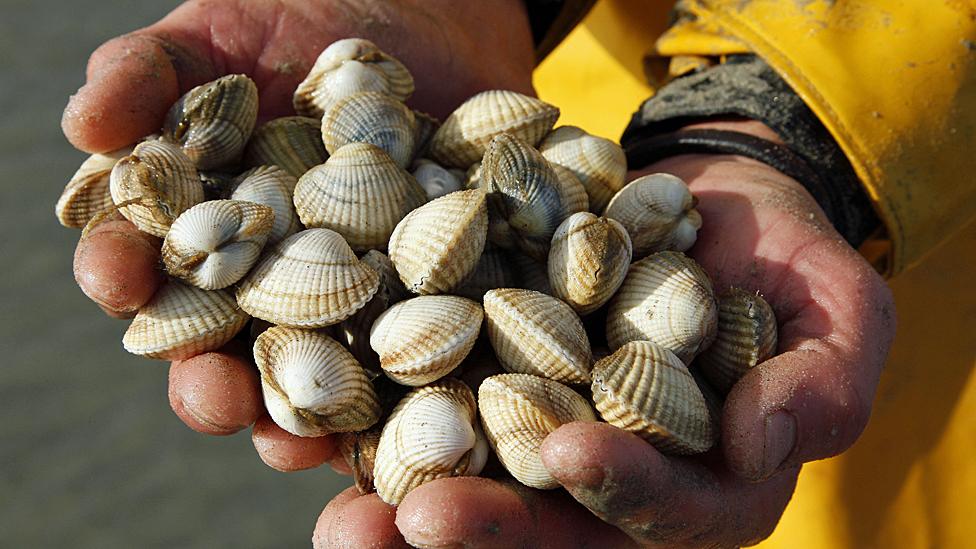
The study could have economic and ecological effects
Dwindling stocks forced closure of the fishery in 2002 but it reopened again four years later when a licensing system was introduced.
However, subject to very limited exceptions, no licences were issued from the end of the 2007/08 season and a full prohibition order was put in place in 2011.
The trial will test to see if the "removal and relaying" of cockles can allow both the host and donor bed to thrive.
If successful, it is said it could be of "significant importance" both on the Solway and to the wider industry.
Dr Gillespie said he had been approached by organisations in the area who were keen to investigate the potential to reopen the beds.
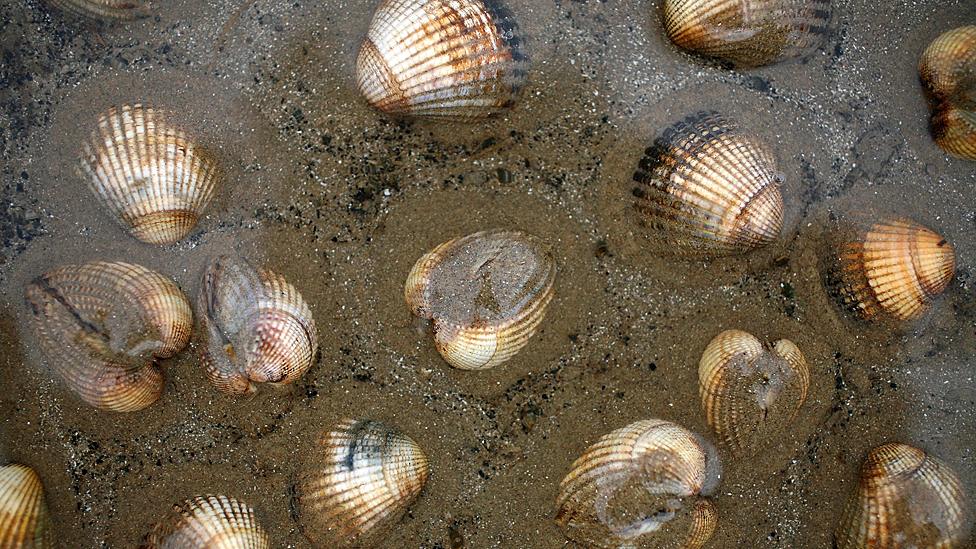
Stocks dwindled in the area, meaning the end of commercial fishing
"This particular study is looking at the potential for moving cockles from a donor site into an area which previously had cockles before," he said.
"The whole idea of this is to investigate whether these cockles that get moved from one place to another would be self-sustaining and would repopulate cockle beds which are now known to have very few cockles in them."
The initial support from the Seafood Innovation Fund covers a three-month trial period but it is hoped a further bid could allow tests over three to four years.
"We need to monitor whether these cockles are re-establishing and if there are any knock-on impacts on the donor site and just how much impact there might be," Dr Gillespie said.
He stressed that any reopening to commercial fishing would have to be monitored and carried out on a "sustainable level".
"It could lead to potential job opportunities again in the Solway and could also lead to the greater benefits of ecological restoration and knock-on impacts for the wider ecosystem," he said.
- Published27 August 2014
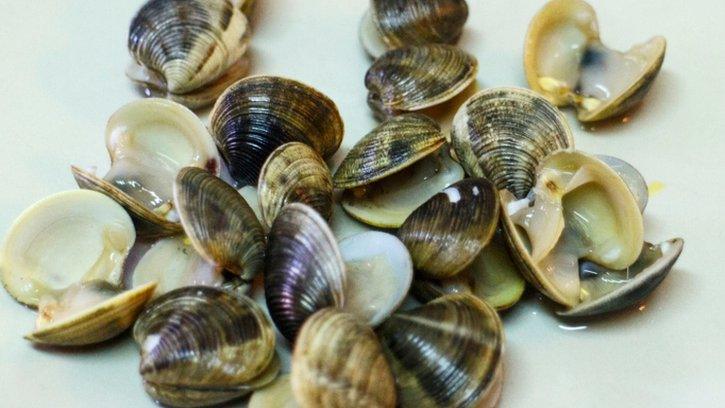
- Published6 August 2012
